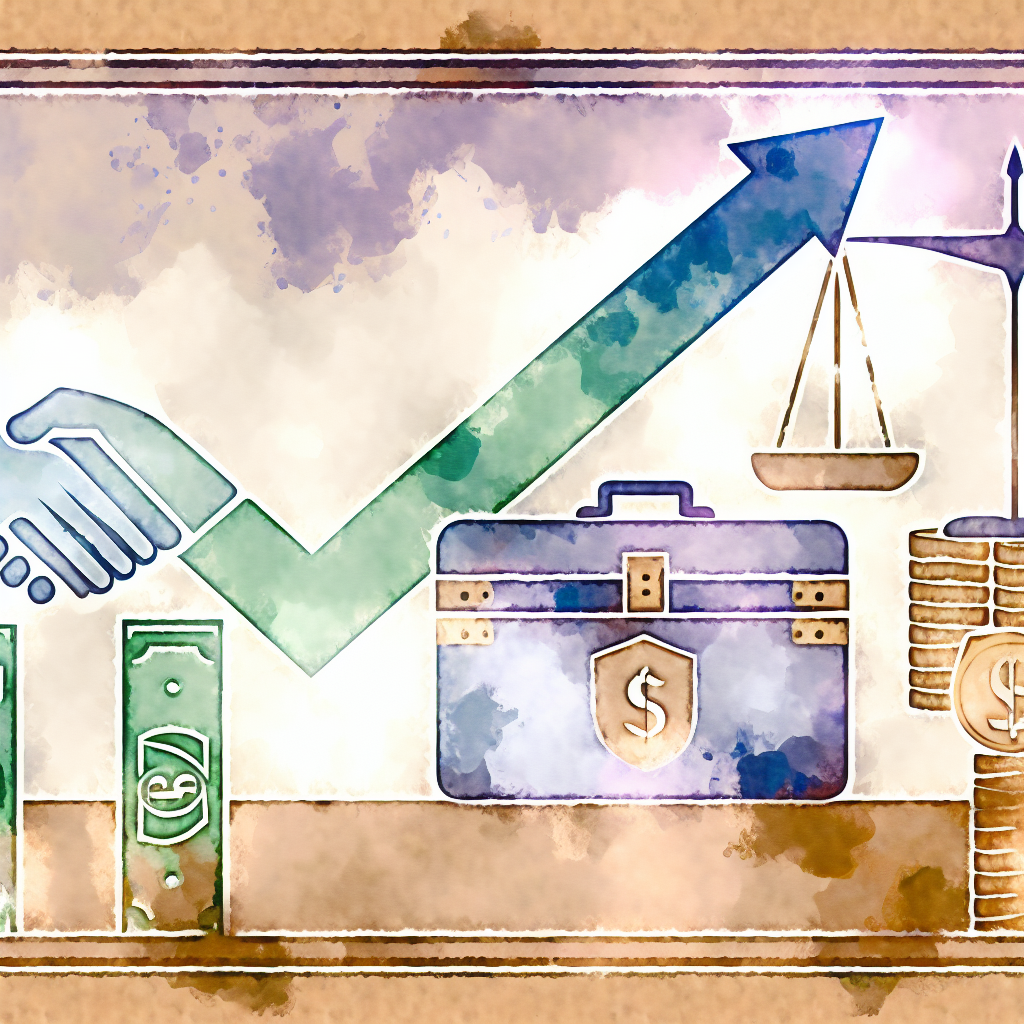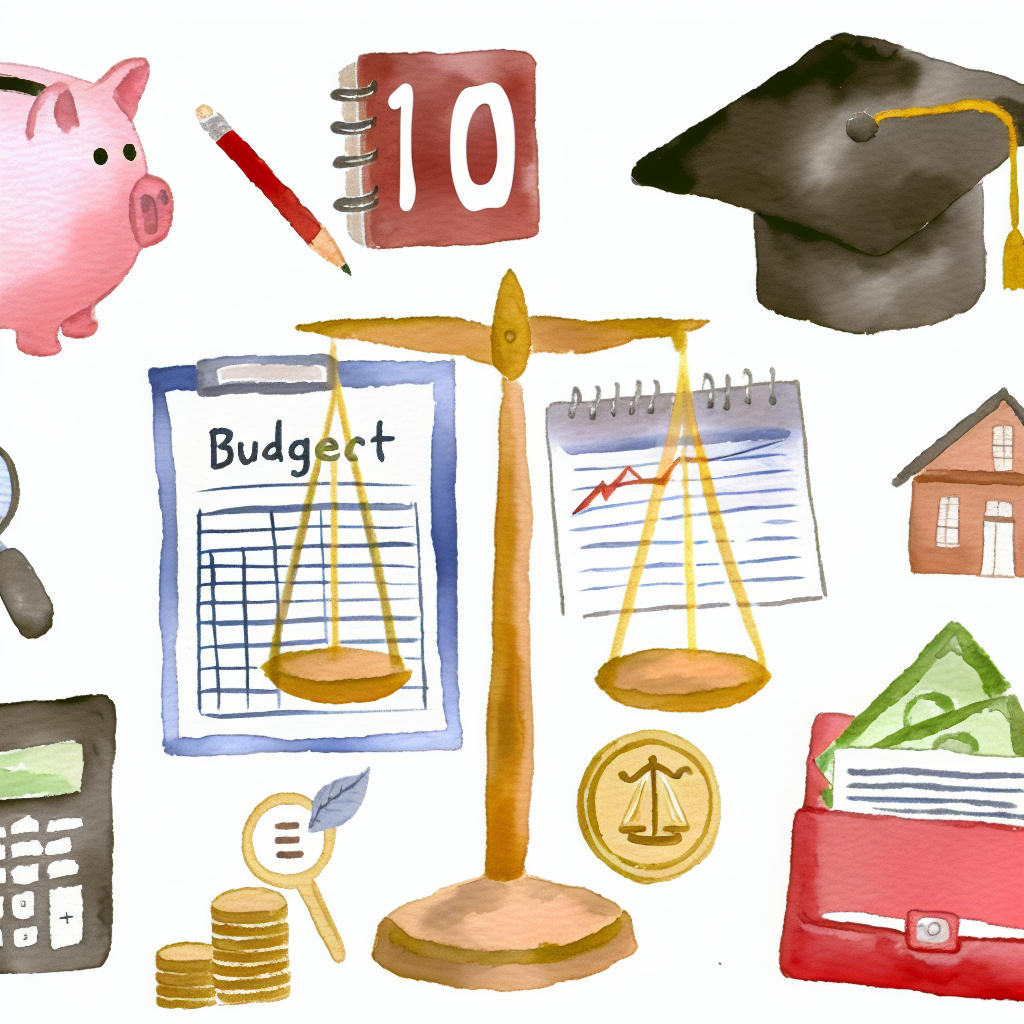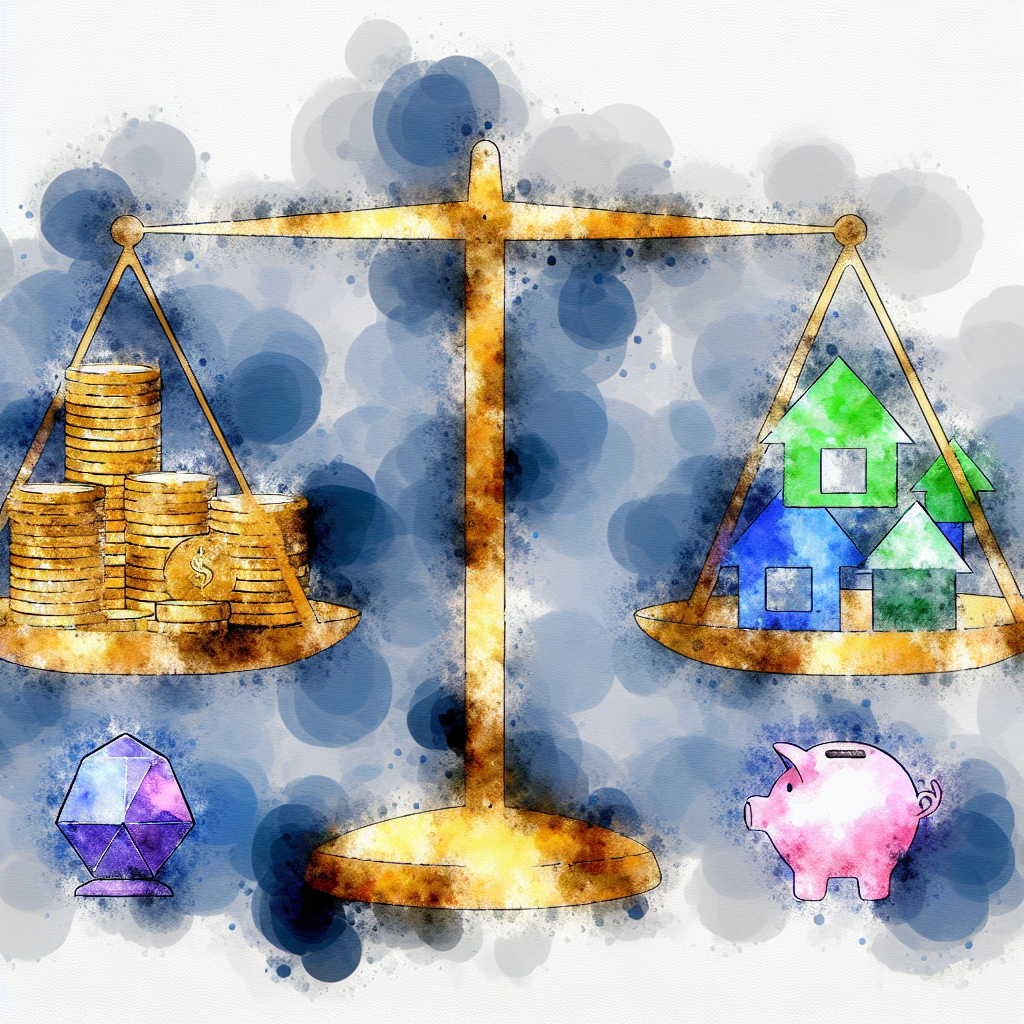Introduction to the Importance of Timely Bill Payments
In the fast-paced world we live in, keeping track of various financial responsibilities can be challenging. With numerous bills and payments to manage each month, it’s incredibly easy to lose track or forget payment deadlines. However, failing to pay your bills on time can lead to significant consequences, including late payment fees, damage to your credit score, and even utility service interruptions.
Timely bill payments are crucial for maintaining financial stability. Consistently missing payment deadlines can accumulate hefty penalty fees, eating into your budget and potentially causing long-term financial issues. According to a study by the National Consumer Law Center, late fees can add up to a substantial amount over a year, further straining your financial resources. Therefore, practicing punctual bill payments is not just a good habit; it’s a financial necessity.
Moreover, staying updated with your bills facilitates better financial planning. Being aware of your upcoming expenses allows you to manage your budget more effectively, ensuring you have enough funds allocated for each payment. This proactive approach helps prevent financial stress and ensures you can meet both your short-term and long-term financial goals.
Ultimately, timely bill payments contribute to financial peace of mind. Knowing that all your obligations are met frees you from the anxiety of potential late fees and other financial pitfalls. This sense of security empowers you to focus on other important aspects of life, promoting overall well-being.
Creating a Monthly Payment Calendar
A monthly payment calendar is an excellent tool to keep track of all your bills and their respective due dates. This visual representation allows you to see all your financial obligations at a glance, making it easier to manage and prioritize payments. By clearly marking each bill’s due date on the calendar, you can ensure no payment is overlooked.
To create a monthly payment calendar, start by listing all your recurring bills. Include essential payments such as rent or mortgage, utilities, credit card bills, insurance premiums, and any other regular expenses. Once you have this list, find out the exact due dates for each payment. Organize these dates chronologically on a calendar, either digital or physical, based on your preference.
A digital calendar offers the advantage of setting automatic reminders. Most smartphones and email services allow you to create recurring events with notifications. This feature ensures you receive alerts before each bill is due, providing ample time to arrange payments. On the other hand, a physical calendar can be displayed in a prominent place, serving as a constant visual reminder of your payment obligations.
Here’s a simple table to illustrate how you might organize your monthly bills:
| Bill Type | Due Date | Amount | Status |
|---|---|---|---|
| Rent/Mortgage | 1st of the Month | $1,200 | Pending |
| Electric Bill | 5th of the Month | $150 | Paid |
| Internet Bill | 10th of the Month | $60 | Pending |
| Credit Card | 15th of the Month | $300 | Paid |
| Insurance Premium | 20th of the Month | $100 | Pending |
Creating a monthly payment calendar is a straightforward yet highly effective strategy to stay updated with your bills. By adopting this approach, you can avoid late payment fees and manage your finances with greater ease and efficiency.
Utilizing Online Banking and Bill Payment Services
Online banking has revolutionized how we manage our finances, providing numerous tools to help stay updated with bills. By leveraging online banking and bill payment services, you can streamline your payment process and reduce the risk of missing deadlines.
One of the primary advantages of online banking is the ability to view all your accounts in one place. This comprehensive view allows you to quickly check balances, transaction histories, and upcoming payments. Most banks offer bill payment services, enabling you to schedule one-time or recurring payments directly from your account. This convenience ensures that all your financial obligations are met promptly without requiring individual manual payments.
Additionally, many online banking platforms offer features like e-bills and payment alerts. E-bills are electronic versions of your paper bills, sent directly to your online banking portal. They organize your bills in one place and notify you when new bills arrive. Payment alerts can be customized to notify you of due dates, ensuring you don’t overlook any payments.
When utilizing online banking and bill payment services, it’s essential to ensure your account has sufficient funds before scheduling payments. Overdrafts can lead to penalties and additional fees, negating the benefits of online payments. Regularly monitor your account balance to prevent this issue.
| Feature | Benefits |
|---|---|
| View All Accounts | Consolidated view of balances and transactions |
| Schedule Payments | Schedule one-time or recurring payments |
| E-Bills | Electronic versions of paper bills sent to your banking portal |
| Payment Alerts | Customizable notifications for bill due dates and payments |
| Balance Monitoring | Ability to regularly check account balances to prevent overdrafts |
Incorporating online banking and bill payment services into your financial routine simplifies bill management and helps avoid late payment fees. Taking advantage of these digital tools can save time, reduce stress, and ensure you stay organized with your monthly bills.
Setting Up Automatic Bill Payments
Automatic bill payments are an excellent way to ensure you never miss a due date. By setting up automatic payments, you authorize your bank or service provider to withdraw the required amount from your account on a specified date each month. This method can save you time and effort while ensuring timely payments.
To set up automatic bill payments, start by identifying which bills can be paid automatically. Most utilities, credit card companies, and service providers offer this option. Log in to your online banking account or the service provider’s website, and follow their instructions to set up automatic payments. You’ll likely need to provide your bank account information and choose a payment date.
However, while automatic payments offer convenience, they require careful management to avoid potential issues. Always ensure that your account has sufficient funds to cover the payments. Set reminders to check your account balance regularly, particularly around the payment dates, to prevent overdrafts and related fees.
Another important aspect is to review your bank statements and payment confirmations. Automatic payments can sometimes be processed incorrectly due to technical glitches or errors. Regularly reviewing these details ensures that all payments are accurate and helps you catch and resolve discrepancies promptly.
| Steps to Set Up Automatic Payments | Tips for Successful Management |
|---|---|
| Identify Eligible Bills | Ensure sufficient funds in your account before payment dates |
| Log In to Service Provider | Set reminders to check your account balance regularly |
| Provide Bank Account Information | Review bank statements and payment confirmations for accuracy |
| Choose a Payment Date | Contact service providers immediately if there are any discrepancies |
Setting up automatic bill payments can significantly reduce the chances of missing payment deadlines and incurring late fees. With careful management and regular monitoring, this system can help you stay updated with your bills efficiently and conveniently.
Using Budgeting Apps to Track Expenses
In the digital age, budgeting apps have emerged as invaluable tools for managing your finances, including bill payments. These apps offer various features that allow you to track expenses, set budgets, and receive reminders for upcoming bills. Utilizing these tools can help you stay organized and avoid late payment fees.
Budgeting apps provide a central location to monitor all your financial transactions. By syncing your bank accounts, credit cards, and other financial services, these apps give you a comprehensive view of your income and expenditures. This consolidated approach allows you to see exactly where your money is going and adjust your spending habits accordingly.
Many budgeting apps also offer bill tracking features. You can input your recurring bills, along with their due dates and amounts, and the app will notify you when a payment is upcoming. Some advanced apps even allow you to set up auto-payments directly through the app, providing an all-in-one solution for managing bills.
Here’s a comparison table of popular budgeting apps and their features:
| App | Expense Tracking | Bill Tracking | Auto-Pay | Reminders | Cost |
|---|---|---|---|---|---|
| Mint | Yes | Yes | No | Yes | Free |
| YNAB (You Need a Budget) | Yes | Yes | No | Yes | Subscription Fee |
| PocketGuard | Yes | Yes | No | Yes | Free/Paid Tier |
| EveryDollar | Yes | Yes | No | Yes | Free/Premium |
In addition to tracking expenses and bills, budgeting apps can help you set financial goals. Whether you’re saving for a big purchase or trying to pay off debt, these apps allow you to set goals and track your progress, ensuring you stay on track financially.
Budgeting apps simplify the process of managing your finances and staying updated with bills. By leveraging these tools, you can avoid late payment fees and gain better control over your financial future.
The Role of Reminders and Alerts in Preventing Missed Payments
Reminders and alerts play a crucial role in ensuring you stay updated with your bills. With numerous financial responsibilities, it’s easy to forget payment due dates. Setting up reminders and alerts can help you stay on top of your obligations and avoid late payment fees.
One of the most effective ways to set reminders is through your digital calendar. Whether you use Google Calendar, Apple Calendar, or any other platform, you can create events for each bill’s due date. Set these events to recur monthly and enable notifications to receive alerts a few days before the payment is due.
In addition to calendar reminders, many online banking platforms and budgeting apps offer built-in alert features. These services can notify you of upcoming due dates via email, SMS, or in-app notifications. Customizing these alerts according to your preferences ensures you receive timely reminders for all your bills.
Here’s a list of common reminder and alert methods:
- Digital Calendar Events: Create recurring events with notifications for each bill’s due date.
- Email Alerts: Set up email notifications from your online banking platform or budgeting app.
- SMS Alerts: Opt for SMS notifications for instant reminders of upcoming payments.
- In-App Notifications: Enable in-app notifications in your budgeting app for real-time reminders.
When setting up reminders and alerts, it’s essential to find a balance between being informed and being overwhelmed. Receiving too many notifications can lead to alert fatigue, where you start ignoring reminders. Customize your alerts to ensure they’re timely and relevant without being excessive.
Using a combination of digital calendar events and notification services can greatly enhance your ability to stay updated with bills. By implementing these strategies, you can minimize the risk of missed payments and avoid the hassle of late fees.
Storing Financial Documents and Receipts Systematically
Organizing your financial documents and receipts is an integral part of managing bill payments effectively. Proper storage ensures you have easy access to records, which can be crucial for verifying payments and resolving disputes. A systematic approach to storing these documents can enhance your overall financial organization.
Start by categorizing your financial documents and receipts. Separate them into different categories such as bills, receipts, bank statements, insurance documents, and tax records. Use labeled folders or binders to store physical documents, and create digital folders for electronic records. This categorization makes it easier to locate specific documents when needed.
For digital documents, consider using cloud storage solutions like Google Drive, Dropbox, or other secure platforms. Cloud storage not only provides easy access from any device but also ensures your documents are safe from physical damage or loss. Regularly back up important files to avoid data loss.
Here’s a basic outline of how to organize financial documents:
| Category | Storage Method | Frequency of Review |
|---|---|---|
| Bills | Labeled Folders or Digital Folders | Monthly |
| Receipts | Envelopes or Digital Scans | Quarterly |
| Bank Statements | Binders or Secure Cloud Storage | Annually |
| Insurance Documents | Binders or Digital Folders | Annually |
| Tax Records | Binders or Secure Cloud Storage | Annually |
In addition to categorizing and storing documents, establish a regular review schedule. Periodically reviewing your financial records helps ensure everything is up-to-date and allows you to identify and address any discrepancies promptly.
By storing your financial documents and receipts systematically, you can easily verify payments, handle disputes, and stay organized with your bills. This foundational step strengthens your overall financial management and supports timely bill payments.
Reviewing and Updating Payment Methods Periodically
Periodically reviewing and updating your payment methods is essential for maintaining efficient bill management. Your financial situation and available payment options can change over time, making it necessary to reassess and optimize your methods regularly.
Start by reviewing your current payment methods for each bill. Determine whether automatic payments, online banking, or manual payments are being used. Evaluate their effectiveness in ensuring timely payments and identify any shortcomings. For instance, if you frequently receive late fees on certain bills, consider switching to automatic payments or using another reliable method.
Updating payment methods also involves ensuring your payment information is current. Expired credit cards, outdated bank account details, or changes in service provider payment options can lead to payment failures. Regularly update your information to avoid such issues.
Here are some tips for effectively reviewing and updating your payment methods:
- Conduct Regular Reviews: Assess your payment methods at least annually or whenever there’s a significant change in your financial situation.
- Update Information: Ensure all payment information, such as card expiration dates and bank account details, is current.
- Explore Options: Stay informed about new payment options or tools that may offer greater convenience or security.
- Test New Methods: If considering a new payment method, test it on a small bill first to ensure reliability before making widespread changes.
Regularly reviewing and updating your payment methods can help optimize your bill management process, preventing missed payments and late fees. This proactive approach ensures your payment system remains efficient and effective.
Contacting Service Providers for Payment Plans if Needed
At times, financial difficulties may hinder your ability to make timely bill payments. In such situations, contacting your service providers and discussing payment plans can be a valuable strategy. Most providers are willing to work with customers facing temporary financial hardships.
Before contacting your service provider, assess your financial situation to determine what type of assistance you need. Whether it’s a temporary deferment, reduced payment amounts, or an extended payment plan, having a clear understanding of your needs will help you negotiate effectively.
When speaking to your service provider, be honest about your financial difficulties and explain your circumstances. Many providers have hardship programs designed to assist customers during challenging times. Request information about these programs and discuss the available options.
Here’s a basic outline for negotiating payment plans with service providers:
| Step | Action |
|---|---|
| Assess Financial Needs | Determine the type of assistance required (deferment, reduction, etc.) |
| Contact Provider | Call customer service and explain your situation clearly |
| Discuss Options | Request information about hardship programs and available payment plans |
| Negotiate Terms | Agree on a plan that meets your needs and ensure you understand the terms |
It’s important to document all discussions and agreements with your service provider. Keep records of emails, letters, and notes from phone calls for future reference. This documentation can be crucial if there are any disputes or misunderstandings.
Reaching out to service providers for payment plans can provide temporary relief and prevent the accumulation of late fees during financial hardships. It’s a proactive step that can help you manage your finances more effectively.
Tips for Handling and Prioritizing Overdue Bills
Dealing with overdue bills can be overwhelming, but a strategic approach can help you manage and prioritize payments effectively. By addressing overdue bills promptly, you can avoid further financial penalties and regain control over your finances.
Begin by listing all your overdue bills along with their outstanding amounts, due dates, and any associated late fees or interest. This comprehensive overview helps you understand the extent of your financial obligations and prioritize payments based on urgency and importance.
Here are some steps for handling and prioritizing overdue bills:
- Prioritize Essentials: Focus on essential bills first, such as rent/mortgage, utilities, and insurance. These are critical for maintaining your living conditions.
- Negotiate with Creditors: Contact creditors to explain your situation and negotiate payment plans or reduced settlements. Many creditors are willing to work with you to avoid default.
- Allocate Funds Strategically: Allocate available funds to the most critical overdue bills. Make partial payments if full payments are not possible, demonstrating your commitment to resolving the debt.
- Avoid Further Delays: Set up reminders and alerts for upcoming payments to prevent additional overdue bills.
Here’s an example table to illustrate how you might prioritize overdue bills:
| Bill Type | Outstanding Amount | Due Date | Priority Level | Action Plan |
|---|---|---|---|---|
| Rent/Mortgage | $1,200 | Immediate | High | Negotiate with landlord |
| Electric Bill | $150 | Immediate | High | Pay in full |
| Credit Card | $500 | 10 days past | Medium | Negotiate payment plan |
| Internet Bill | $60 | 15 days past | Low | Pay in partial |
Handling overdue bills requires a structured and disciplined approach. By prioritizing essential payments, negotiating with creditors, and avoiding further delays, you can manage overdue bills effectively and restore financial stability.
Conclusion: The Benefits of Staying Organized with Bill Payments
Staying organized with bill payments offers numerous benefits, from avoiding late fees to maintaining financial stability. By implementing various strategies and tools, you can ensure timely payments and enhance your overall financial well-being.
One of the primary benefits of staying organized with bill payments is the avoidance of late fees. Timely payments prevent unnecessary penalties, saving you money and preserving your budget. This financial discipline allows you to allocate resources more efficiently, supporting other financial goals.
Additionally, maintaining an organized bill payment system reduces financial stress. Knowing that all your bills are paid on time provides peace of mind and eliminates the anxiety associated with missed payments and mounting debts. This sense of security enables you to focus on other aspects of your life, promoting overall well-being.
Finally, a systematic approach to bill payments enhances your financial planning. By tracking expenses, setting budgets, and using digital tools, you gain better control over your finances. This proactive management contributes to achieving both short-term and long-term financial goals, ensuring a secure and prosperous future.
In conclusion, the benefits of staying organized with bill payments extend beyond mere financial stability. It fosters a disciplined approach to managing money, reduces stress, and supports comprehensive financial planning. Implementing the strategies discussed in this article can help you stay updated with bills and enjoy the peace of mind that comes with financial organization.
Recap
- Timely bill payments are crucial for avoiding late fees and maintaining financial stability.
- Creating a monthly payment calendar helps visualize and manage due dates effectively.
- Utilizing online banking and bill payment services streamlines payment processes.
- Automatic bill payments ensure timely payments but require careful balance monitoring.
- Budgeting apps offer comprehensive tools to track expenses and manage bills.
- Reminders and alerts prevent missed payments by providing timely notifications.
- Systematic storage of financial documents ensures easy access and verification.
- Regularly reviewing and updating payment methods optimizes bill management.
- Contacting service providers for payment plans can provide relief during financial hardships.
- Prioritizing overdue bills is essential for managing financial obligations effectively.











